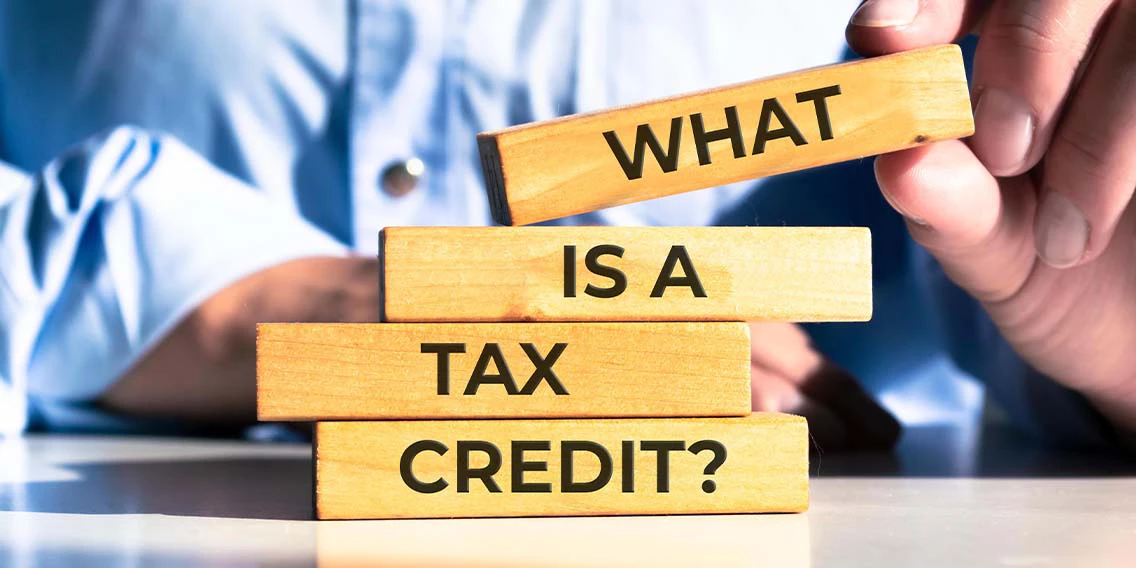FINANCE
Tax Loans — What Are They, and How Do They Work ?
EXPECTED READ TIME: 5 MINUTES
Do you owe more in income taxes than you can pay in one go? If so, the Internal Revenue Service (IRS) will charge you interest and penalty fees until you pay that amount back in full. The good news is there are other options, such as taking out a tax loan. Tax loans can help you better manage your payments and may cost you less over the long run. if you use the money before or when you file your taxes.
You should always consult a licensed tax professional for the most up-to-date information on tax laws, and keep in mind that PenFed does not offer personal loans for paying taxes. In the meantime, we’ll go over the basics of a tax loan so you can determine if one’s right for you.
What Is a Tax Loan?
Essentially, a tax loan is a personal loan you take out in one lump sum to pay the government back when you owe money for taxes. Since it's a personal loan, you have a fixed monthly payment for the duration of the loan term. Depending on the rate you qualify for, it may save you money on interest compared to what the IRS charges.
How Does a Tax Loan Work?
Taking out a tax loan means you're borrowing money from a lender to pay the amount you owe to the IRS. If you're approved, you’ll receive a lump sum to use toward state taxes, federal taxes, or other uses.
There can be a lot of benefits to using tax loans to pay off your tax bill, but how does it actually work? Instead of paying the IRS in installments, you pay your lender for the agreed upon term. The monthly amount includes the principal amount, plus interest. Your interest rate depends on a number of factors, such as the loan amount, the loan term, and your income and credit report.
Tax loans may be both secured and unsecured. Secured loans require collateral to qualify, whereas unsecured loans don't require any collateral.
Tax loans offer you some breathing room instead of panicking or scrambling to come up with the money.
Do I Need a Tax Loan?
Tax loans are best for those who owe taxes and can't afford to pay them in one lump sum. A tax loan can also help you if your tax bill was unexpected and you want to hold onto your hard-earned cash in favor of paying in small monthly payments over a fixed period of time. In other words, tax loans allow you to have some breathing room instead of panicking or scrambling to come up with the money.
Folks who tend to owe a large sum typically include those who work as contractors or in occupations with variable income. For instance, if you're newly self-employed and don't pay estimated taxes, you'll most likely owe thousands of dollars by the end of the year.
Another way to pay your taxes is with your credit card, though it can be an expensive choice.
Alternatives to Tax Loans
Tax loans are not the only way to pay your taxes. Depending on how much you owe, other methods may be better for you.
Credit Cards
Another way to pay your taxes is with your credit card, though it can be an expensive choice. First, you may have to pay a processing fee. While the amount will vary, expect to pay anywhere from 1.75% to 1.85% of the payment amount, with a $2.50 minimum. That means if you owe $5,000, you'll pay between $87.50 and $92.50 in fees. There's also the interest your credit card company charges — most credit card rates are in the double digits.
Depending on your credit situation, you could apply for a credit card with a 0% introductory APR. If you can pay back the amount in full by the time the introductory period ends, this is a great option. But if you can't pay back the full amount in time, you could be hit with interest charges. And don't forget to check the fine print to see whether this type of payment is allowed.
It's a good idea to compare all your options to see how much it'll cost you overall to find the best option.
IRS Payment Agreement
Your other option is to deal directly with the IRS to come up with a payment agreement, though this could also be an expensive alternative. You have two options if you want to go this route:
Installment agreement: You can tell the IRS how much you are able to afford to pay each month, then wait for the agency to approve or deny the request. If approved, you'll need to pay a setup fee that can be as high as $178 (though you may be able to get it waived if you're a low-income taxpayer). Interest charges and penalties will keep accruing until you pay off the entire amount you owe. The interest rate is set quarterly by adding 3% to the federal short-term rate, and compounds daily. (As of 2025, the interest rate is 7%). The penalty is one-half of one percent for each month or part of a month the balance is unpaid (up to 25%).
Full payment agreement: Qualified taxpayers may have up to 120 days to pay the amount in full. You won't be charged a fee, but you'll accrue interest and penalties until the balance is paid off in full.
Both these options with the IRS depend on whether you'll be approved for the installment option or whether you'll be able to pay what you owe within 120 days. It's a good idea to compare all your options to see how much it'll cost you overall to find the best option.
If taking out a tax loan is the best option for you, start by researching lenders who offer these types of loans.
How to Get a Tax Loan
If taking out a tax loan is the best option for you, start by researching lenders who offer these types of loans.
When making your comparison, don't just look at the lowest rates. You'll want to look at the fees and terms to make sure you're making an accurate comparison. For example, if one lender offers a lower interest rate but charges an origination fee, it might be beneficial compared to another one that has a slightly higher interest rate but no additional charges.
Another factor to look at? The loan’s term. Depending on your situation, you may want to stretch out your payments if you can only afford a low monthly payment. However, the longer your loan’s term, the more interest you'll pay over the life of your loan.
Once you've found the loan you want, fill out an application form and submit the required documents. Once it's approved and you receive the funds, use the borrowed money to pay your taxes. Make sure to make on-time monthly payments to your lender, or else you could face late fees and other types of penalties. Late or partial payments may also negatively impact your credit score.
The longer your loan’s term, the more interest you pay over the life of your loan.
The Takeaway
Once you've worked out how you'll pay your tax bill, see what you can do to boost your tax refund next year. That could mean making a higher quarterly estimated tax payment if you're self-employed or adjusting your W-4 withholding. Seeking the help of a tax professional is also a good idea, since this person can best advise you on your tax situation.
Getting Your Biggest Tax Refund Has Never Been Easier
PenFed members can take advantage of exclusive discounts for H&R Block or Turbo Tax.




